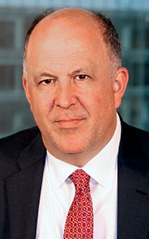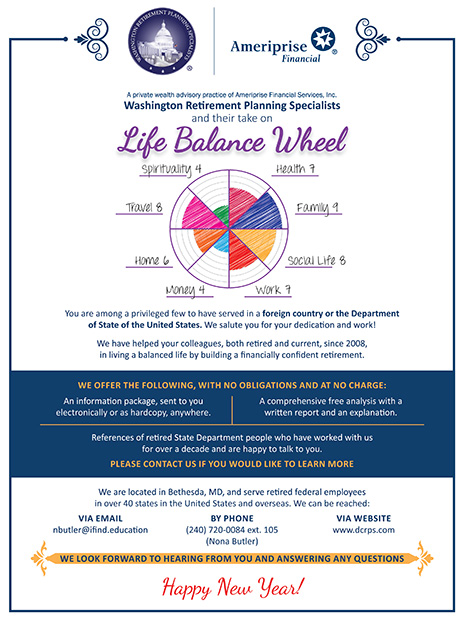Diplomacy and Democracy: Putting Values into Practice
American diplomats can play an important role in addressing the global weakening of democracy.
BY MICHAEL J. ABRAMOWITZ
Over the past 14 years, my organization, Freedom House, has tracked a steady erosion of political rights and civil liberties around the world. The decline has affected not just the states that were already repressive, such as Russia and China, but also new democracies such as Poland and Hungary and long-established democracies, including the United States. Our reports show a long-term decline in the vitality of our own democracy, a trend that has become especially pronounced in recent years and undermines our credibility as a champion of human rights globally.
The disturbing global trend is a direct threat to U.S. interests, as our country benefits from being surrounded by democratic allies with whom we can work effectively to tackle shared challenges such as terrorism and climate change. The advent of COVID-19 makes it even more urgent to halt and roll back the assault on democracy, as we have seen strongmen use the health crisis as cover to attack the free press, curtail freedoms of association and assembly, decrease government transparency, disrupt elections and engage in other abuses of power that could further erode democratic governance.
As the son of former State Department officials, I am well aware of the difference that diplomats can make in the world. Stationed in Bangkok in the late 1970s and early 1980s, U.S. Ambassador to Thailand Morton Abramowitz, my dad, and my mom, Sheppie, who worked closely with the International Rescue Committee, labored to mobilize the U.S. embassy to address the refugee crisis created by the communist regimes in Cambodia and Vietnam, in which millions of people fled to Thailand and neighboring countries. Thanks at least in part to their efforts and the efforts of other diplomats in the mission, hundreds of thousands of refugees were accepted by the United States, eventually becoming productive and engaged citizens of our country.
This is one reason why I am so convinced that American diplomats can play an important role in addressing another great challenge of our times—the global weakening of democracy and the return of authoritarianism as a dominant form of governance in many parts of the world.
Diplomatic support for human rights defenders ... can make a life-or-death difference for these individuals.
While we have not always lived up to our aspirations, most administrations of both political parties have recognized that addressing attacks on democracy and human rights must be a key component of U.S. foreign policy. President Jimmy Carter established a human rights bureau at the State Department that still provides an annual assessment of individual countries’ human rights records. President Ronald Reagan worked with Congress to establish the National Endowment for Democracy and other institutes aimed at supporting the advance of democratic practice around the globe. The outgoing administration is on record as supporting the cause of global human rights and democracy—and puts special focus on the cause of religious freedom—even if its commitment to this agenda has been questioned.
What Diplomats Can Do
Individual diplomats have a crucial role to play in the defense of democracy around the world.
First, American diplomats can make a renewed commitment to democratic values in their day-to-day work. Support for democracy starts at home, and highlighting the need to strengthen our own country’s democracy can be a powerful way to gain credibility when it comes to defending democratic practice abroad. In South Korea this past summer, Ambassador Harry Harris made sure that his embassy’s official Twitter account expressed solidarity with peaceful protesters calling for racial justice in the United States, and embassy officials even hung a large Black Lives Matter banner in front of the mission. While the media reported that Secretary of State Mike Pompeo’s office asked for the sign to be taken down, the gesture sent a clear message that great democracies are capable of reflection and self-correction and don’t simply lecture other countries.
More concretely, diplomats can work to strengthen American democracy by pushing for a more diverse and inclusive Foreign Service. State Department staff should encourage the leadership to reform recruitment practices. According to a January 2020 Government Accountability Office report (GAO-20-237), only 32 percent of the department’s full-time, permanent, career employees—including both Civil Service and Foreign Service members—identify as racial or ethnic minorities. For the Foreign Service alone, the number dips to 24 percent, meaning our diplomatic corps is significantly less diverse than the public it represents. Reforms to the recruitment process could help, starting with a review of intake procedures for any inherent biases and consideration of changes that would allow for midcareer entry into the Foreign Service.
Second, U.S. diplomats can educate young people on democracy. U.S. diplomats are often the first, and sometimes the only, representatives of democracy who can reach out to the youth of the world. Global dissatisfaction with democracy, particularly in developed nations, is at an all-time high, increasing from 47.9 percent in the 1990s to 57.5 percent in 2019, according to a report by the University of Cambridge’s Centre for the Future of Democracy. And data show that the world’s 1.8 billion young people share this sentiment. Many feel excluded from or underrepresented by democratic institutions and processes, and do not believe that elected officials have their interests at heart. They view free and fair elections as less important than previous generations and are more tolerant of autocratic rule.
It is vital that diplomats report the truth about the human rights situations in the countries in which they are stationed, even if they worry that Washington will not judge them kindly for their candor.
Scholars theorize that this is because much of the world’s youth have grown up under some form of democratic rule (Freedom House finds 39 percent of the world’s population living in a “Free” country and another 25 percent in a “Partly Free” country with some features of democracy), seeing only its deficiencies and not recognizing the many advantages it has over other forms of government. Diplomats can help young people see all that democracy has to offer by supporting programming that teaches and encourages basic democratic principles such as integrity, inclusion, accountability and civic engagement, and by encouraging actual participation in democratic governance as elected leaders or political activists.
Third, diplomats are often the last line of defense when it comes to human rights abuses. We repeatedly hear from our partners around the world that diplomatic support for human rights defenders, activists and prisoners of conscience can make a life-or-death difference for these individuals. Attending trials, inquiring with foreign government officials about the health and status of detainees, and visiting them in prison can directly influence how long they are imprisoned and how they are treated in custody. It is vital that diplomats report the truth about the human rights situation in the countries in which they are stationed, even if they worry that Washington will not judge them kindly for their candor. Such attention clearly demonstrates to undemocratic rulers that their crimes will not go unnoticed by the world.
Diplomatic involvement has made a critical difference in many well-known cases, whether it was helping to negotiate the safe departure from China of human rights activist Chen Guangcheng, who had been detained under house arrest; routinely pressing Azerbaijani officials until they agreed to release human rights defenders Leyla and Arif Yunus, whose health had been failing in prison; or, more recently, making daily visits to the home of Belarusian Nobel laureate and opposition figure Svetlana Aleksievich, to deter violence and intimidation by the regime of Alyaksandr Lukashenka. She had been receiving anonymous threats, and unknown individuals had attempted to enter her home. The visits and social media posts about her case by foreign diplomats helped keep her safe until she was able to leave the country.
In many ways, the challenges facing democracy and human rights around the world seem dire. We are in the middle of a lethal pandemic that has presented a range of new challenges to democratic rule and fundamental freedoms. But there are also signs of hope. Protest movements have continued unabated despite lockdowns, and in the past two years they have helped overthrow a dictator in Sudan and threatened another in Belarus. Dictatorships are inherently brittle and face questions from citizens about whether they can deliver services and economic growth. Corruption is an Achilles’ heel for many of them.
We must also remember that democratic principles and respect for human rights are not “Western” concepts but universal values with worldwide appeal. It is up to America—and its diplomatic service—to remind global audiences of this essential truth.
Read More...
- “USAID Election Assistance: Lessons from the Field,” by Assia Ivantcheva, The Foreign Service Journal, May 2018
- “Supporting Civil Society in the Face of Closing Space,” Mariam Afrasiabi and Mardy Shualy, The Foreign Service Journal, May 2018
- “Democracy Versus the Pandemic,” by Larry Diamond, Foreign Affairs, June 13, 2020





